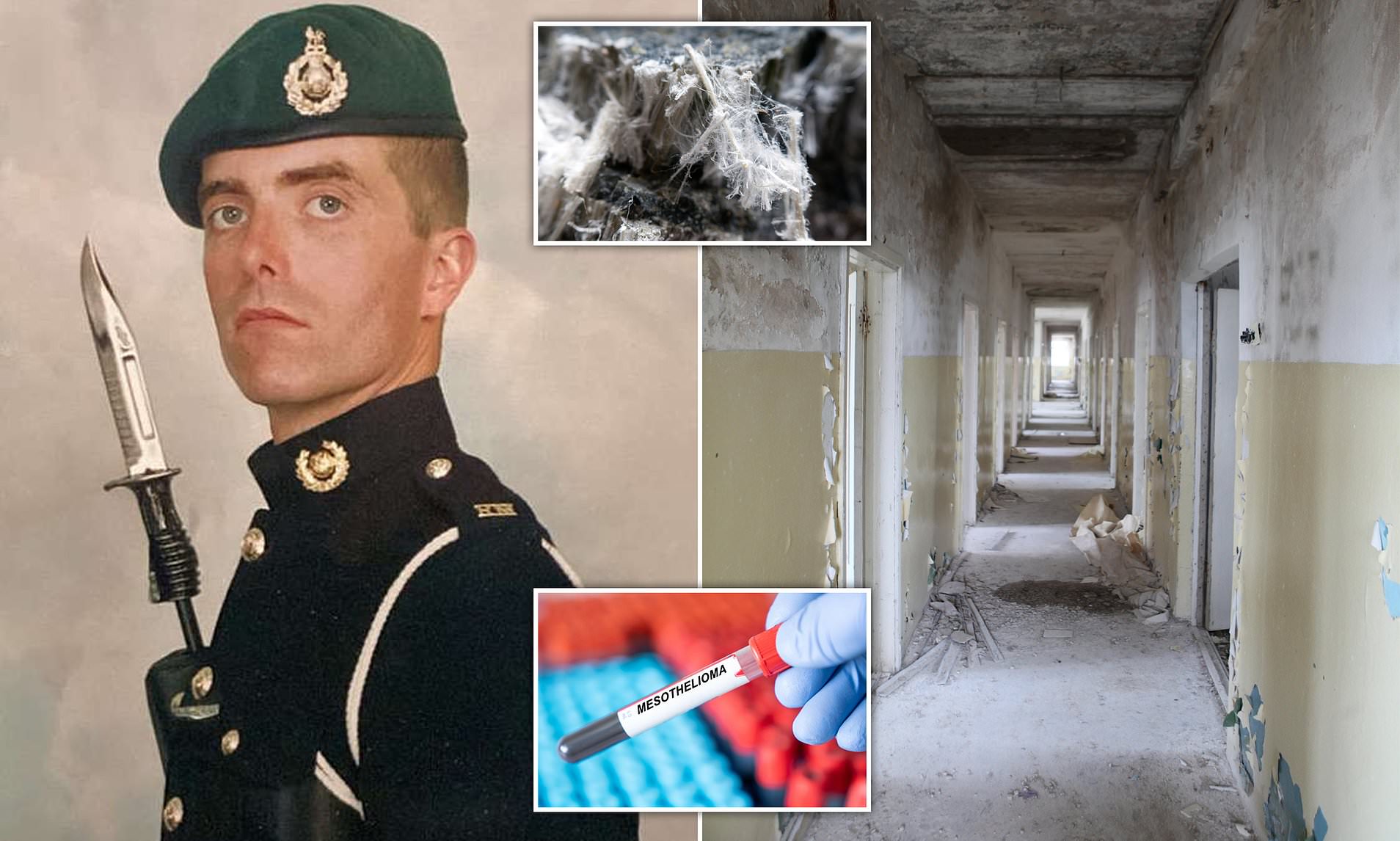Asbestos: A Hidden Killer Among Military Veterans
Asbestos has proven to be a far deadlier threat to military veterans than the Taliban was during the Afghan campaign. Government records reveal that asbestos exposure has led to nine times more deaths among veterans compared to British casualties from the Taliban in Afghanistan. This alarming statistic highlights a long-standing issue that has affected service personnel for decades.
The deadly material, commonly found in military accommodations, ships, submarines, helicopters, and even tanks, continues to cause an average of 89 cases of mesothelioma annually. Mesothelioma is a fatal cancer directly linked to asbestos exposure. According to the British Occupational Hygiene Society, former service members could be up to ten times more likely to develop asbestos-related diseases than the general public. This increased risk is due to prolonged exposure in environments where asbestos was once widely used.
Compensation disputes have also emerged, with affected veterans receiving significantly less than their civilian counterparts. Over the past nine years, since the introduction of a military mesothelioma compensation scheme, the Ministry of Defence has issued 803 payouts totaling £112.5 million. All claimants were terminally ill, underscoring the severity of the condition.
Annual Health and Safety Executive figures suggest that a similar number of veterans died from asbestosis and other asbestos-related lung cancers. During the 20-year deployment of British service personnel in Afghanistan (from 2001 to 2021), it is estimated that 3,560 asbestos-related deaths occurred among veterans. This figure is considered a conservative estimate.
In comparison, 405 serving men and women lost their lives due to the hostile actions of the Taliban, out of a total of 457 UK casualties in Afghanistan. The stark contrast between these numbers raises serious concerns about the health risks faced by military personnel.
Liz Darlison, chief executive of Mesothelioma UK, expressed deep concern over the situation. “We should hang our heads in shame – exposing our boys and girls to asbestos is killing them way faster than the Taliban ever could,” she said. Asbestos-related disease is Britain’s biggest industrial killer, taking more than 5,000 lives a year. Just over half of these are due to mesothelioma, an incurable cancer affecting the lungs and stomach membrane.
Symptoms of asbestos-related diseases can appear anywhere from 20 to 60 years after exposure. Once diagnosed, most patients die within a year. The Daily Mail’s Asbestos: Britain’s Hidden Killer campaign has been advocating for government action, including a phased removal of the material from public buildings and the establishment of a register to track its location and condition.
Until 2016, veterans with mesothelioma could not claim compensation from the MoD under the legal doctrine of Crown Immunity. However, legislation passed in 2014 waived this immunity, and a War Pension Scheme was established. Claims for other diseases such as asbestosis can sometimes be made to the Armed Forces Compensation Scheme, depending on strict circumstances.
Ms. Darlison highlighted the inequalities in treatment. “Our national network of mesothelioma nurses see a disproportionate number of military veterans. It isn’t something that’s talked about – but it should be. It’s a national disgrace.” Research conducted by Sheffield University revealed serious disparities in how military veterans are treated compared to civilians.
Under the War Pension Scheme, those diagnosed can choose between a weekly or monthly pension or a one-off payment of £140,000. Most opt for the lump sum, knowing they have only a year to live. This amount has not been increased for nine years. Personal injury lawyers note that civilians often receive £100,000 more when making claims against workplaces where they were exposed.
Moreover, civilian settlements frequently include provisions for private or innovative treatments, which are not available to military veterans. Families of deceased veterans cannot make compensation claims under the War Pension Scheme, unlike civilian families.
Emma Lewell, Labour MP for South Shields, whose grandfather died from mesothelioma, emphasized the need for urgent action. “It can’t be right that those who have served get lesser compensation than civilians. This needs to be looked at urgently.”
Edward Hill, a former Royal Marine leading a legal action by 260 ex-Marines, alleges they were exposed to asbestos during military exercises in Latvia in 2018 and 2019 without being allowed to move away from the contaminated area. He stated, “According to my own research, asbestos-related disease kills more veterans than anything after natural causes. That veterans aren’t treated as well as civilians is a disgrace.”
Professor Kevin Bampton of the British Occupational Hygiene Society called for an “end-to-end strategy” to protect service personnel from asbestos. “You could reasonably expect a cause of premature deaths for service personnel to be combat injury,” he said. “You don’t expect nine times as many people to die from asbestos-related disease, which is preventable and completely unnecessary.”
The MoD acknowledged the complexity of comparing veteran and civilian compensation claims, citing the lower standard of proof required for veterans. While the compensation amount has not increased, choosing a War Widow(er) Pension allows for annual inflation adjustments. The MoD reiterated its commitment to the health and safety of service personnel and defense employees.










